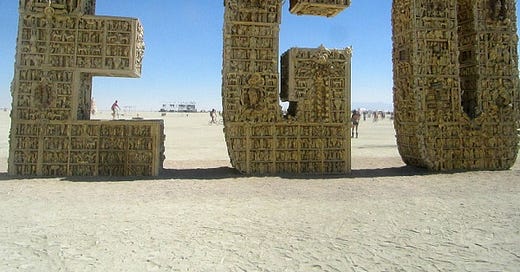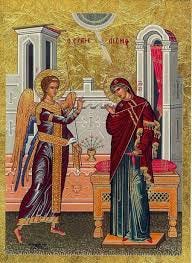“The Lord does not show Himself to a proud soul. The proud soul, no matter how many books it reads, will never know God, since by its pride it does not give place for the grace of the Holy Spirit, while God is known only by the humble soul.”
St. Silouan the Athonite
Isaiah 25:1-9
O LORD, thou art my God; I will exalt thee, I will praise thy name; for thou hast done wonderful things, plans formed of old, faithful and sure. For thou hast made the city a heap, the fortified city a ruin; the palace of aliens is a city no more, it will never be rebuilt. Therefore strong peoples will glorify thee; cities of ruthless nations will fear thee. For thou hast been a stronghold to the poor, a stronghold to the needy in his distress, a shelter from the storm and a shade from the heat; for the blast of the ruthless is like a storm against a wall, like heat in a dry place. Thou dost subdue the noise of the aliens; as heat by the shade of a cloud, so the song of the ruthless is stilled. On this mountain the LORD of hosts will make for all peoples a feast of fat things, a feast of wine on the lees, of fat things full of marrow, of wine on the lees well refined. And he will destroy on this mountain the covering that is cast over all peoples, the veil that is spread over all nations. He will swallow up death for ever, and the Lord GOD will wipe away tears from all faces, and the reproach of his people he will take away from all the earth; for the LORD has spoken. It will be said on that day, “Lo, this is our God; we have waited for him, that he might save us. This is the LORD; we have waited for him; let us be glad and rejoice in his salvation.”
Genesis 9:8-17
Then God said to Noah and to his sons with him, “Behold, I establish my covenant with you and your descendants after you, and with every living creature that is with you, the birds, the cattle, and every beast of the earth with you, as many as came out of the ark. I establish my covenant with you, that never again shall all flesh be cut off by the waters of a flood, and never again shall there be a flood to destroy the earth.” And God said, “This is the sign of the covenant which I make between me and you and every living creature that is with you, for all future generations: I set my bow in the cloud, and it shall be a sign of the covenant between me and the earth. When I bring clouds over the earth and the bow is seen in the clouds, I will remember my covenant which is between me and you and every living creature of all flesh; and the waters shall never again become a flood to destroy all flesh. When the bow is in the clouds, I will look upon it and remember the everlasting covenant between God and every living creature of all flesh that is upon the earth.” God said to Noah, “This is the sign of the covenant which I have established between me and all flesh that is upon the earth.”
Proverbs 12:8-22
A man is commended according to his good sense, but one of perverse mind is despised. Better is a man of humble standing who works for himself than one who plays the great man but lacks bread. A righteous man has regard for the life of his beast, but the mercy of the wicked is cruel. He who tills his land will have plenty of bread, but he who follows worthless pursuits has no sense. The strong tower of the wicked comes to ruin, but the root of the righteous stands firm. An evil man is ensnared by the transgression of his lips, but the righteous escapes from trouble. From the fruit of his words a man is satisfied with good, and the work of a man’s hand comes back to him. The way of a fool is right in his own eyes, but a wise man listens to advice. The vexation of a fool is known at once, but the prudent man ignores an insult. He who speaks the truth gives honest evidence, but a false witness utters deceit. There is one whose rash words are like sword thrusts, but the tongue of the wise brings healing. Truthful lips endure forever, but a lying tongue is but for a moment. Deceit is in the heart of those who devise evil, but those who plan good have joy. No ill befalls the righteous, but the wicked are filled with trouble. Lying lips are an abomination to the LORD, but those who act faithfully are his delight.
The Annunciation of our Most Holy Lady, the Theotokos and Ever-Virgin Mary
The Feast of the Annunciation is one of the earliest Christian feasts, and was already being celebrated in the fourth century. There is a painting of the Annunciation in the catacomb of Priscilla in Rome dating from the second century. The Council of Toledo in 656 mentions the Feast, and the Council in Trullo in 692 says that the Annunciation was celebrated during Great Lent.
The Greek and Slavonic names for the Feast may be translated as “good tidings.” This, of course, refers to the Incarnation of the Son of God and the salvation He brings. The background of the Annunciation is found in the Gospel of Saint Luke (1:26-38). The troparion describes this as the “beginning of our salvation, and the revelation of the eternal mystery,” for on this day the Son of God became the Son of Man.
There are two main components to the Annunciation: the message itself, and the response of the Virgin. The message fulfills God’s promise to send a Redeemer (Genesis 3:15): “I will put enmity between you and the woman, between your seed and her seed; he shall crush your head, and you shall lie in wait for his heel.” The Fathers of the Church understand “her seed” to refer to Christ. The prophets hinted at His coming, which they saw dimly, but the Archangel Gabriel now proclaims that the promise is about to be fulfilled.
We see this echoed in the Liturgy of Saint Basil, as well: “When man disobeyed Thee, the only true God who had created him, and was deceived by the guile of the serpent, becoming subject to death by his own transgressions, Thou, O God, in Thy righteous judgment, didst send him forth from Paradise into this world, returning him to the earth from which he was taken, yet providing for him the salvation of regeneration in Thy Christ Himself.”
The Archangel Gabriel was sent by God to Nazareth in Galilee. There he spoke to the undefiled Virgin who was betrothed to Saint Joseph: “Hail, thou who art highly favoured, the Lord is with thee: blessed art thou among women. And, behold, thou shalt conceive in thy womb, and bring forth a son, and shalt call his name Jesus. He shall be great, and shall be called the Son of the Most High: and the Lord God shall give unto him the throne of his father David: And he shall reign over the house of Jacob for ever; and of his kingdom there shall be no end.”
In contrast to Eve, who was readily deceived by the serpent, the Virgin did not immediately accept the Angel’s message. In her humility, she did not think she was deserving of such words, but was actually troubled by them. The fact that she asked for an explanation reveals her sobriety and prudence. She did not disbelieve the words of the angel, but could not understand how they would be fulfilled, for they spoke of something which was beyond nature.
Then said Mary unto the angel, “How shall this be, seeing I know not a man?” (Luke 1:34).
“And the angel answered and said unto her, ‘The Holy Ghost shall come upon thee, and the power of the Most High shall overshadow thee: therefore also that which shall be born of thee shall be called the Son of God. And, behold, thy cousin Elisabeth hath also conceived a son in her old age: and this is the sixth month with her, who was called barren. For with God nothing shall be impossible.’ And Mary said, ‘Behold the handmaid of the Lord; be it unto me according to thy word.’ And the angel departed from her.” (Luke 1: 35-38)
In his Sermon 23 on the day of the Annunciation, Saint Philaret of Moscow boldly stated that “the word of the creature brought the Creator down into the world.” He explains that salvation is not merely an act of God’s will, but also involves the Virgin’s free will. She could have refused, but she accepted God’s will and chose to cooperate without complaint or further questions.
The icon of the Feast shows the Archangel with a staff in his left hand, indicating his role as a messenger. Sometimes one wing is upraised, as if to show his swift descent from heaven. His right hand is stretched toward the holy Virgin as he delivers his message.
The Virgin is depicted either standing or sitting, usually holding yarn in her left hand. Sometimes she is shown holding a scroll. Her right hand may be raised to indicate her surprise at the message she is hearing. Her head is bowed, showing her consent and obedience. The descent of the Holy Spirit upon her is depicted by a ray of light issuing from a small sphere at the top of the icon, which symbolizes heaven. In a famous icon from Sinai, a white dove is shown in the ray of light.
There are several famous icons of the Annunciation. One is in the Moscow Kremlin in the church of the Annunciation. This icon appeared in connection with the rescue of a prisoner by the Mother of God during the reign of Ivan the Terrible. Another is to be found in the Dormition Cathedral in Moscow (July 8). It was originally located in Ustiug, and was the icon before which Saint Procopius the fool (July 8) prayed to save the city from destruction in 1290. One of the most highly revered icons in Greece is the Tinos icon of the Annunciation (January 30).
The Annunciation falls during Lent, but it is always celebrated with great joy. The Liturgy of Saint Basil or Saint John Chrysostom is served, even on the weekdays of Lent. It is one of the two days of Great Lent on which the fast is relaxed and fish is permitted (Palm Sunday is the other).
Self-absorption as a source of psychological problems
Dr. Nikolaos Koios
The Orthodox Patristic tradition and modern pastoral psychology consider self-absorption to be a source of many psychological and spiritual problems. Elder Sophrony, at Essex, called the internal and event he external state of egocentric people demonized spirituality which engenders all the passions and sins. The same saintly Elder, who lived in our own times, considered pride to be the root of all evil, as did the ancient Church Fathers.
This ontological truth has practical consequences in our everyday lives, if we think that we’re the center of other people’s attention.
Saint Païsios the Athonite was asked: ‘Elder, if you have the feeling that everybody’s interested in you and your doings, how can you get rid of it?’
He answered: ‘That’s from the temptation that’s going to make you ill. You should pay no attention to it and not believe it at all. If somebody’s of a suspicious nature and he or she sees another person talking quietly to a third party, they’ll think: ‘They’re talking about me. I hadn’t expected that from them’. And all the time they were talking about something entirely different. If you’re not careful, this feeling grows and then where will you be? You think that people are following you, that they’re persecuting you. Even if you have actual proof that they’re talking about you, you should know that the enemy himself has arranged things so that you’ll be convinced. And it’s amazing how the devil fixes things!’
The common position of the Fathers of the Church is that, for people to be protected from the danger of self-absorption, they shouldn’t have complete confidence in their own thoughts. And they manage to do so when they have a genuine and responsible relationship with the spiritual guide to whom they expose all their thoughts and doubts in total honesty.
Saint Païsios, to whom we’ve just referred, emphasized that obedience to your spiritual guide is the safest way to ensure spiritual balance. When you open your heart to your spiritual guide, you’re relieved of the burden. Some people would rather go to a psychiatrist than to a spiritual guide. If the psychiatrist’s a believer, he or she will urge them to go to a spiritual guide. Otherwise they’ll simply be given a course of pharmaceutical treatment. But medication alone won’t solve the problem; it also requires spiritual assistance.
This week’s calendar reminders:
Monday 3/24: Vesperal Liturgy for Annunciation of the Most Holy Theotokos 6:30 p.m. (potluck meal to follow)
Tuesday 3/25: no services or events
Wednesday 3/26: Presanctified Liturgy 6:30 pm (potluck meal to follow)
Thursday 3/27: Lenten Matins 8:30 am
Friday 3/28: Paraklesis to the Theotokos 8:30 am
Saturday 3/29: Catechumen Class 4:30 pm; Choir Rehearsal 4:30 pm; Great Vespers 6 pm
Sunday 3/30: Divine Liturgy 9:15am;
CLICK BELOW to donate online:
Christ the Savior Orthodox Church is located in Southbury, Connecticut, and is part of the New England Diocese of the Orthodox Church of America.
Mailing address: Christ the Savior Church, 1070 Roxbury Road, Southbury, CT 06488
PLEASE DONATE to help our parish do the work of the Lord, thrive and grow, and extend the Kingdom of God. May the Lord bless your generosity!
Fr. Moses Locke can be reached at frmoseslocke@gmail.com











